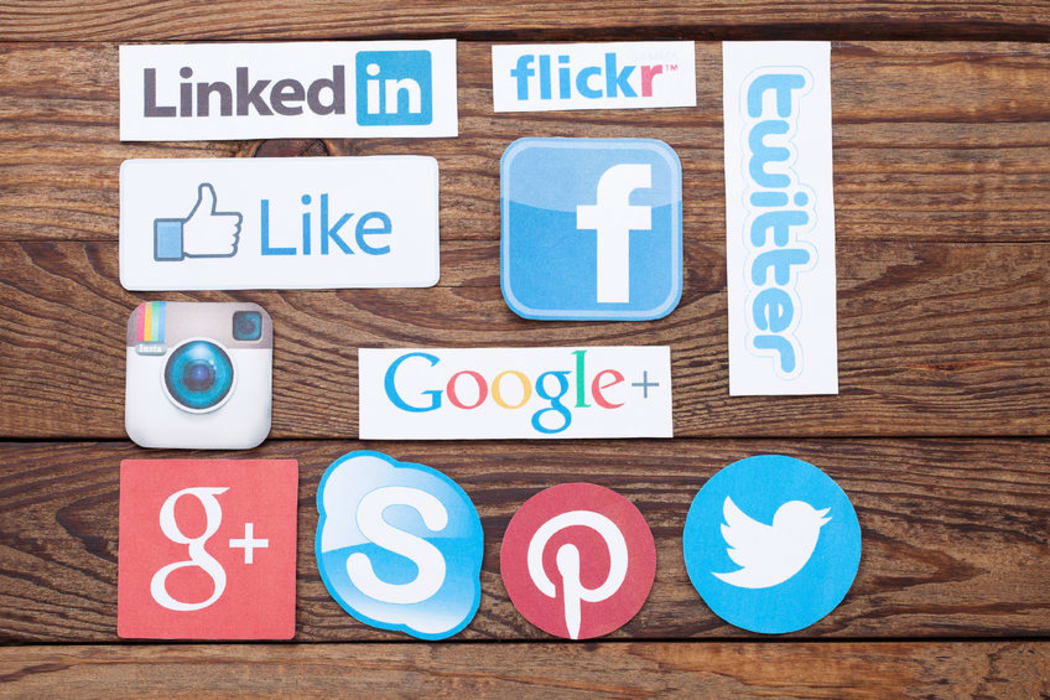Social media users are being urged to appoint a digital executor to make sure their wishes for their accounts are respected after death.
Many people do their banking, insurance and other financial business online, as well as engage on social media platforms, without giving much thought to legal protocols.

Social media Photo: 123RF
Director of Operations at the Australian Communications Consumer Action Network Narelle Clark told Nine to Noon people are increasingly storing their personal and financial information online.
They often don't read the fine print and have no idea what will happen to their digital footprint if they die.
Ms Clark is hosting a forum set up by Internet New Zealand in Wellington on Thursday, which will feature experts discussing the types of steps people can take to protect their digital legacy.
"What you should do is sit down and, alongside your normal will, think up all of the things you want to do with your digital footprint," she said.
"All of this stuff that you're accumulating online, particularly if it's got monetary value - I can't stress that enough, if it's got monetary value - make sure that your designated heirs can get access to all this after you move on."

Some people want their Facebook accounts to remain open after they die so people can visit their page and remember them. Photo: 123RF
Facebook now allows members to set up a legacy contact, allowing its user to nominate someone who will decide whether their page is shut down, or kept online as a memorial page to the deceased.
"You can also download the entire contents offline so that your family can remember your photos and so forth offline, if they want to sort through them offline rather than online, but people often find having some online presence - especially if that's how they interacted with you - can be comforting.
"People wanted to leave it there because they can go to that person's Facebook page and remember them and be comforted by the memories and times they had fun together, when they visited the Louvre together or Eiffel Tower or whatever they did."
Google, meanwhile, might not hand over access to family members without a court order, to protect the privacy of people who had been in correspondence with the email account holder. However, you can also set up an inactive account manager, who might be notified if your account hasn't been used in some time.
Twitter reserves the right to keep high-profile accounts active after the death of the original owner, with the possibility that the account might use artificial intelligence to continue tweeting.
"If Twitter decides, arguably, your account is making them a lot of money because they like advertising they could well decide not to shut it down.
"And there is now such a thing as an avatar, that can live on and tweet in your name using artificial intelligence to look at all the tweets you used to tweet."
New Zealand Law Society has a checklist online, about what questions you should ask yourself about what you want to happen with your digital legacy after you die, and information about what different social media providers require to store, disclose or remove your content.





